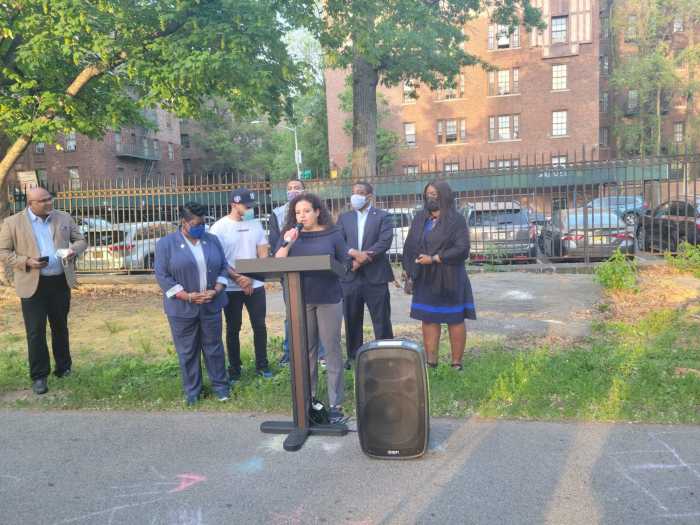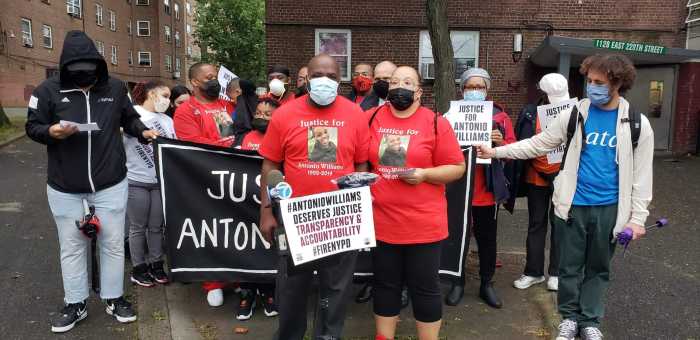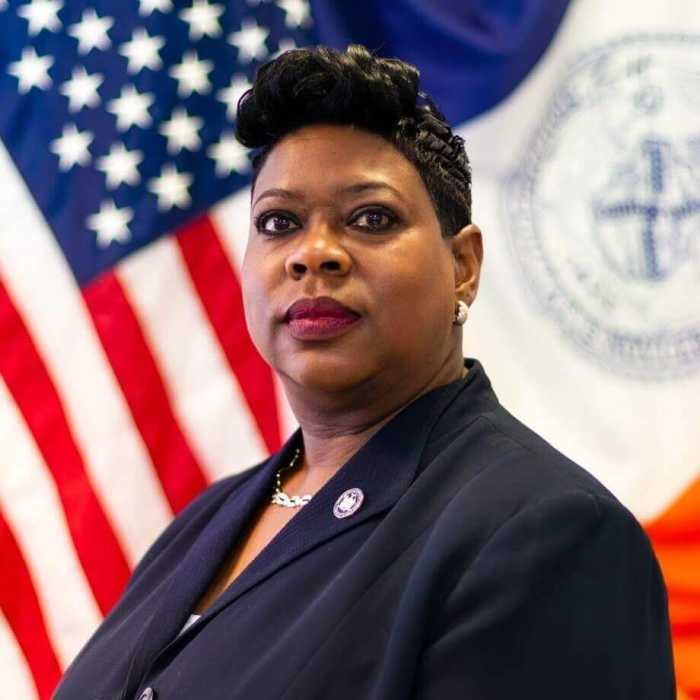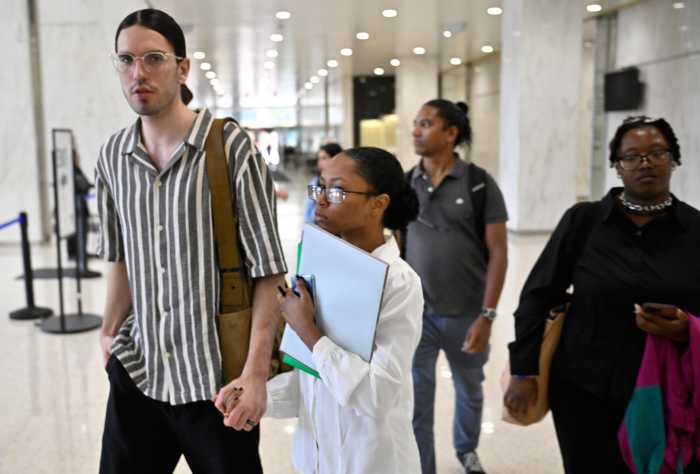Bronx District Attorney Darcel D. Clark called for adjustments last week to New York’s “Raise the Age” law and other measures to address youth gun violence in the Bronx, which has taken the lives of teens and devastated communities at a pace not seen in the city for decades.
“The Raise the Age Law increased the age for criminal responsibility to 18 and established a Youth Part in Criminal Court,” Clark said. “It was the right decision, since New York was one of only two states to still treat youths as adults, and it was designed to protect their lives. However, since its inception in 2019, we have seen unexpected consequences that do not promote safety in our community. There are 16 and 17-year-olds with guns who are not being held accountable, recidivists are not being detained, and a gap in the law results in a situation where there is no jurisdiction or supervision for youth who turn 18 while their case is pending in Family Court.”
District Attorney Clark suggests these adjustments to the law:
1. Make all firearms charges (Penal Law Article 265) eligible for retention by the Youth Part in Criminal Court. There is a requirement that the defendant “displayed” the firearm. As a result, youth who are in possession of a loaded gun see their cases sent to Family Court. If they possess a loaded gun it should be eligible to remain in the Youth Part.
2. Allow Youth Part judges to access Family Court records, and such records should be made available to all parties to a Youth Part case for the purposes of setting bail, sentencing and alternatives to detention. Judges do not have the authority to access Family Court records, which may contain information that is relevant for purposes of setting bail, sentencing and alternatives to detention. The practical effect of this is that Youth Part judges do not know a
defendant’s prior Family Court history. In effect, as far as Youth Part judges know, it is always a youthful offender’s first and only charge.
3. Give Family Court jurisdiction over 18-year-olds if the offense with which they are charged is alleged to have been committed when the defendant was 16 or 17 years old. The presumption is that a case should be transferred from the Youth Part to Family Court, unless one of three facts exist (causing serious or significant injury, displaying a firearm, or certain sex offenses), or there is a showing of “extraordinary circumstances.” If you commit a crime when you are 16 or 17, and your case goes to Family Court, its jurisdiction ends when you turn 18, so the case ends. This is clearly an unintended consequence.
Clark also called for expanding the funding of services and programming to prevent youth guns violence, and for increasing services such as trauma counseling within the youth detention centers to prevent reoffending. She has also called for increased efforts to stop firearms trafficking.
To provide examples of the need for changes to the Raise the Age Law, Clark cited a recent case in which five 16-year-old boys were indicted on charges related to the fatal shootings of a 13-year-old, a 16-year-old, and the non-fatal shooting of two men, along with car jackings and robberies in the Bronx. One of the murder victims, a 16-year-old, had two prior criminal possession of a weapon case removed to Family Court.
She also cited the case of a 16-year-old shot and killed in September, who had two open gun cases in Family Court and one open gun case in the Youth Part prior to his murder; and the case of a 17-year-old charged with the murder of a college student on Oct. 24, 2021. The teen was on probation at the time for a 2020 case. He and a co-defendant were indicted on facts alleging assault robbery and criminal possession of a firearm for robbing a person of a chain. The co-defendant allegedly shot the person. The case was in the Youth Part of Criminal Court. Over prosecutors’ objections, a judge gave him five years’ probation after pleading to the charges.





















